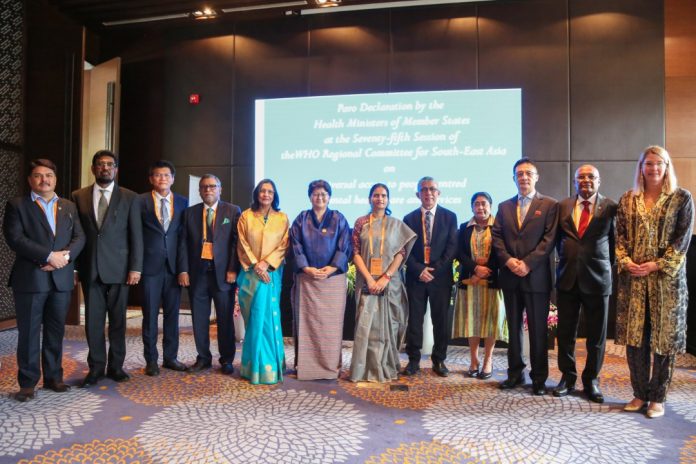Member States of the WHO South-East Asia Region have committed to prioritise investment in health care in order to accelerate progress in global health development.
“Prioritising investments to strengthen primary health care, including health workforce, will accelerate progress towards achieving health for all and help realize health-related sustainable development goals, health security and equity promoting health systems.”
WHO Regional Director Dr Poonam Khetrapal Singh spoke at a ministerial roundtable on “Strengthening primary health care as a key element towards achieving universal health coverage,” which ended with member countries and WHO signing the Delhi Declaration on Strengthening Primary Health Care.
The Declaration is based on the commitments of Heads of State and Government and Ministers of Health to strengthen primary health care as the most effective and efficient way to address the evolving health challenges in the Region.
We must seize the opportunity to build on the strong momentum generated to accelerate progress towards universal health care. This will ensure everyone, everywhere can access the health care and services they need, where they need, and without enduring financial hardship.
In 2017, nearly 299 million people in the Region experienced catastrophic health care costs. Over the past ten years, the Region’s UHC service index has improved from 47 in 2010 to 62 in 2021.
The density of doctors, nurses and midwives has increased by more than 30 per cent since 2014. However, the progress reversed between 2019 and 2021 due to the Covid-19 pandemic.
The Declaration calls for the efficient use of available resources by reinforcing governance, monitoring and accountability systems and utilising innovative technologies and data to improve access and delivery of health services.
“We must increase community participation and ensure health care systems are designed around people with the flexibility to deploy available resources in the most efficient manner to meet the most pressing needs of the community.”
Member countries also committed to promoting regional, national, subnational and cross-country systems of cooperation, governance and sharing of knowledge to strengthen primary health care.
